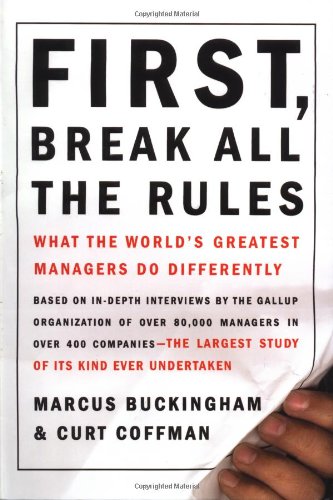How Do I Motivate My Teenager?
November 30, 2020
Many parents wonder, How can I motivate my children? 
It’s a great question, but it’s more important to ask, What am I trying to motivate my child to do? The answer will determine if it’s possible to motivate your teenager.
Everyone is motivated to do something. Even the laziest teenager is motivated to do something (it might be laying around), but even if they are working as hard as they can to do the least amount of work, they are still motivated. They are motivated by the idea of relaxing.
The issue is parents want their teenagers to be motivated to do more than nothing. More than doing mediocre work, more than just getting by with B’s and C’s—parents want children to be motivated to be the best, to excel, and to improve.
The reality is that not many teenagers are motivated to do that these days. It is a good goal for parents to want their children to be successful and to be self-motivated. However, motivating a teenager can be difficult and the reality of the situation is that most parents don’t know how to motivate their children correctly.
Finding the Right Tasks for Your Teenagers
The key to motivating your teenager, is looking at the behavior or action you want them to complete.
You see, a teenager can’t be motivated to be the best, to excel, and to improve at everything in the world. It is impossible. There isn’t enough time in the day, and your teen won’t be good at everything.
For example, some teens that are good at academics, while others excel in sports, leadership clubs, maybe they even do community service and help in a religious organization. This is a lot for one teenager. But this doesn’t scratch the surface of what is possible. There are tons of unique sports and multiple types of fine arts. There are a variety of competitive events. Not to mention the different type of internships or jobs within the medical field, law enforcement, engineering, law, etc.
As a parent you wouldn’t expect your teenager to try and be the best at everything in the world or even feel motivated to do everything in the world. A teenager might try to be motivated to do everything, but they would get burnt out.
We shouldn’t expect a child to be motivated at everything. You might want your child to get good grades in English, but it might be one of the many things they aren’t very good at—so they don’t care. What if reading is not something they are into, or exercising? You want to motivate your teenager, but you will first have to figure out the right thing for them to do.
When you find the right thing for your child to be motivated to do, it can make all the difference in their life. Consider the Olympic swimmer, Michael Phelps. If his adult leaders and teachers didn’t realize that swimming was the right thing for Michael Phelps to be motivated to do when he was young, he could have gone his whole life thinking that he was a failure because it was tough for him to sit still and pay attention in class. In fact, his parents and teachers might have worried that he wasn’t more motivated to do well in school, pay attention in class, and sit still. But, because they found the right thing to motivate him to do, his academic performance was probably better than it would have been, and everyone around him has seen him have more success than they could have hoped!
Two things You Can Never Motivate your Child to Do
 There are two things that you will never be able to motivate your children to do. These are important to remember in finding the right things for them to do and to get motivated These two things are:
There are two things that you will never be able to motivate your children to do. These are important to remember in finding the right things for them to do and to get motivated These two things are:
- Be different than who they are.
- Do something they don’t have the capability to do.
The first is obvious, but counter-intuitive. If you have a lemon seed, you will never be able to turn it into a peach seed or an apple seed. You could put it with the peach seeds and tell it to watch them. You could tell the lemon seed how good the peach seeds are. You could even have it hang out with the peach seeds every day, but no matter what you do, it will be lemon seed. It will not have the motivation to do what peach or apple seeds do. It will always be different. As much as you might want it to be the same as other seeds, it never will.
Popular teaching philosophies suggest that parents and teachers can change who teenagers are. Everyone is different, so we can’t teach all teenagers to be good at math, English, history, sports, leadership, science, engineering, biology, etc. This is not accurate and it causes a lot of stress, worry, depression, anger, and even suicidal thoughts in teenagers.
You can’t motivate someone to be different than who they are, and you can’t motivate someone to do something they are not capable of. Eventually, the lemon seed will grow into a lemon tree. They will produce lemons. You might ask them to produce peaches or apples, but they will not be capable of doing it. Even if they wanted to, they would not be able to do it. This would cause even more psychological issues for.
Everyone is capable of doing something, but no one is capable of doing everything. It is important as parents that we realize what the capability of our child has. This is difficult though. We know it’s ridiculous to ask a dog to fly. Sometimes it’s just as ridiculous to ask a teenager to focus, play less video games, talk more respectfully, calm down, etc. The challenge is, we might not know this until it’s too late.
How Top Managers Feel About Motivating People
 The top managers and leaders in the world have already realized this. Marcus Buckingham and Curt Coffman were leaders in the Gallup Organization for many years. The Gallup Organization is the world leader in the measurement and analysis of human attitudes, opinions, and behaviors. Buckingham and Coffman in their book Break All the Rules, which was based on in-depth interviews of over 80,000 managers in over 400 companies, found that the greatest managers believe the following:
The top managers and leaders in the world have already realized this. Marcus Buckingham and Curt Coffman were leaders in the Gallup Organization for many years. The Gallup Organization is the world leader in the measurement and analysis of human attitudes, opinions, and behaviors. Buckingham and Coffman in their book Break All the Rules, which was based on in-depth interviews of over 80,000 managers in over 400 companies, found that the greatest managers believe the following:
“If you hate meeting new people, can you learn to love icebreaking with strangers? If you shy away from confrontation, can you be made to revel in the cut and thrust of debate? Can you carve new talents? Many managers and many companies assume that the answer to these questions is “Yes”… The world’s great managers don’t share this perspective. Remember their mantra: People don’t change that much. Don’t waste time trying to put in what was left out. Try to draw out what was left in. That is hard enough.”
Buckingham and Coffman go on to explain, “Selecting for talent is the manager’s first and most important responsibility. If he/she fails to find people with the talents that are needed, then everything else he/she does to help them grow will be as wasted as sunshine on barren ground.”
Even in business they find the most successful managers or should I say the most successful people to motivate others to perform, improve, do something, are those that find out who their people are, what their people enjoy and are capable of doing well, and put them in those positions that allows them to do that.
Where Motivation Comes From
Motivation is really simple. A person is motivated to do something when they have the capability to do it, they enjoy it, and they feel it will benefit them. These are the three requirements of motivation. If a person is missing one of these three things, they will be less motivated to do that something. The less capability, enjoyment, and benefit a person has or gets out of that something, the less motivation that person will have to do.
Five Things you can do to Help Your Child Find Motivation
1. Help them find something they enjoy
This tip is pretty straightforward. Help your child find something they want to do already. If you feel they want to do things that you don’t want them doing, then you will have to make a compromise. Find something in between. There is always something that you both will agree upon. It might take some time to figure it out, but that time is well worth it!
2. Help them understand the benefit of doing something
Sometimes, the only reason why a child isn’t motivated is because they don’t see the benefits. A little education might help them. This could come in the form of finding someone to teach them, talking to them yourself, or help them find the info on their own. Just remember, it could be no matter what you do they might not see the value in it. So don’t try to spend too much time trying to help them understand.
3. Figure out what they want to do
You might want to start motivating your teenager by first talking with them and figuring out what they desire or what they want to see happen in their future. This might give you ways to help them along and provide the resources to motivate them to move on their dreams.
4. Create an environment that gives them freedom
One of the best ways to help a teenager find motivation is by giving them freedom to do whatever they want to do. Sometimes when a teenager doesn’t have anything on their plate, they start to want to figure out what they can do and what they want to do. An environment of freedom also creates the perfect situation for a teenager to want to ask you for help.
5. Observe your child and spend time with them
The best way to figure out what your teenager is good and what they enjoy is by watching them. The more you spend time with your teenager, the more you do things with them, the more you will figure out what you can get them to do to increase their motivation.
Good luck in your journey to motivate your teenager! One last thing to remember, whatever it is that your teenager is motivated to do, it is ok. Motivation is contagious. If you teenager is motivated to be the best at a video game, they will develop characteristics and skills that will help them become more motivated at other things of “more” importance like school, work, and family life. You will find the toughest part of motivating your teenager is just finding something that they care about and what to improve.
About the Author
Read more about Dr. Jacob’s latest book.
Dr. Jacob Kashiwagi is business management consultant and acting Chairman of the Board for Leadership Society of Arizona. Dr. Jacob has worked on 1,100+ industry projects valued at $3.6 billion with a 95% success rate. He has taught over 1,300 college students and 2,500 high school students.

